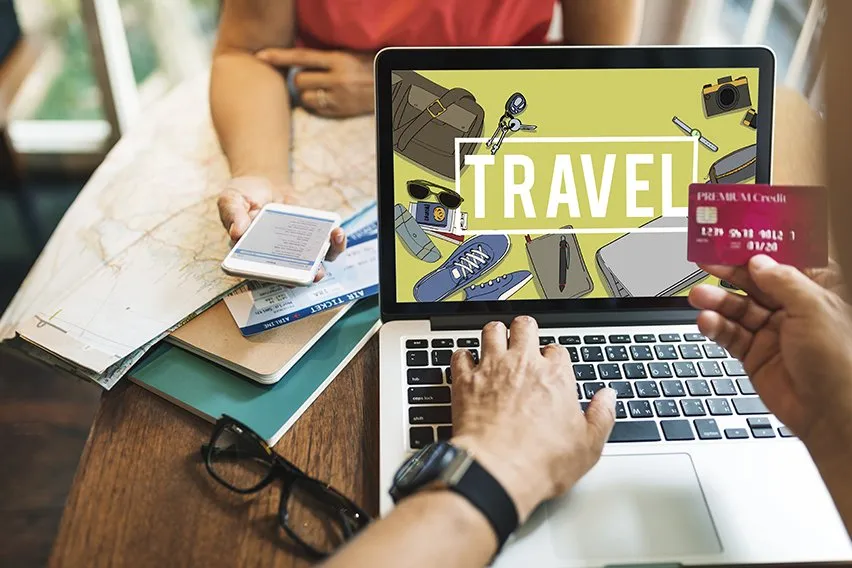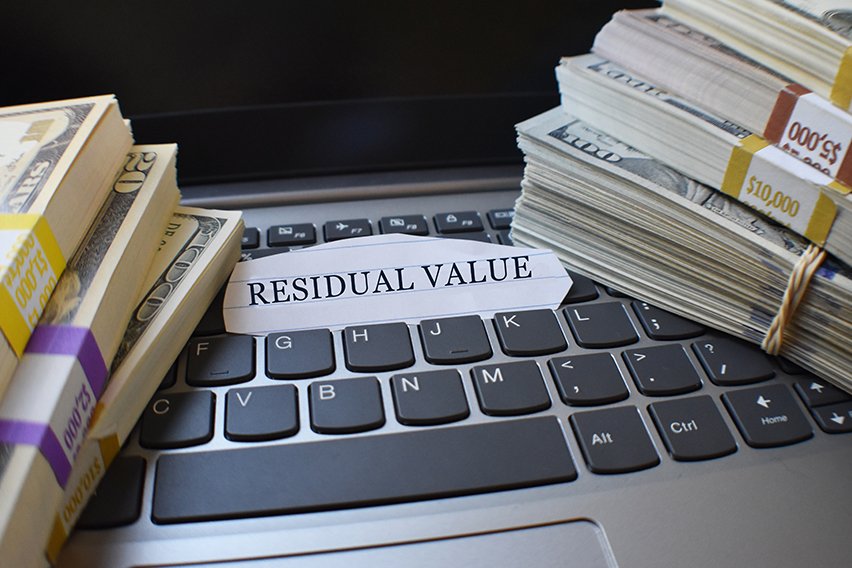What Are Work-Related Travel Expenses & What Can You Claim?

If you didn’t already know, you might be eligible to claim certain expenses for doing your job. It’s all going to depend on the type of work that you do and where you do it. But do you sometimes have to travel for work? Work-related travel might even be a big part of your role.
If you do, the good news is that there are certain work-related travel expenses that you can claim and deduct from your personal tax return. That said, not every expense you incur is able to get deducted. So what exactly are work-related travel expenses and what can you claim?
Here’s What We’ll Cover:
What Are Work-Related Travel Expenses?
Claiming Work-Related Travel Expenses
What If You Receive a Travel Allowance?
What Isn’t Allowed as a Work-Related Travel Expense?
What Are Work-Related Travel Expenses?
If you need to travel for work, any purchases that you make which are related to your travel can get claimed as a travel expense. But, it’s important to know and recognize the difference between work-related expenses and personal expenses. For example, using your personal vehicle to commute to and from work isn’t a travel expense.
However, using your personal vehicle for other work-related purposes are deductible. Here is a list of some of the most common work-related travel expenses that you can claim.
- Costs of staying in a motel, hotel or similar type of accommodation
- Any meal expenses, such as food and drink
- Any expenses that are incidental to your travel, as long as it’s overnight

Transport Expenses
Transport expenses are usually some of the most popular and common tax deductions. Usually, work-related travel, either with your own car or on public transport, is a claimable expense.
Allowable Claims
- Any travel between two different workplaces or jobs
- Any travel from your workplace to an offsite meeting or offsite event
- Any travel from your home to another workplace if it’s required by your employer
- If you work at multiple locations for the same employer, the cost of travelling between locations is a claimable expense
Non-Allowable Claims
- Commuting from home to work each day, and back again
- Running errands on the way to or from work, such as stopping at the supermarket
- If you work out of hours or work overtime
- If your home is the primary place of work for one job, but you travel to another location for work with someone else
Basically, transport expenses include costs such as driving your car, ute, motorcycle or van. They can also relate to costs associated with ride-share or ride-sourcing, such as Uber, GoCatch or Hi Oscar. You can also expense costs if you need to catch a train, taxi, bus, boat or another type of vehicle.
Transport costs are also going to include the actual costs that you incur on your trip. For example, if you incur fuel expenses along the way or parking fees.
You will be able to claim an expense for parking fees as long as the trip you took was business-related. For example, if you need to attend a conference, event or offsite meeting for business purposes, you can claim the parking fees if you have any.
It’s worth noting that you can’t claim everyday parking when you drive to and from work each day and park near your workplace. As well, you can’t claim parking fees as an expense if you have already been reimbursed by your employer.
Claiming Work-Related Travel Expenses
The way in which you claim your work-related travel expenses is going to depend on a few different things. You’re able to claim deductions as work-related car expenses if you meet the following criteria:
- The expenses incurred relate to a car that you own, lease or hired through a hire-purchase agreement
- You determine your total deduction based on either the cents per kilometre method or the logbook method
You’re able to claim your deduction for work-related transport expenses as long as the expenses relate to:
- A vehicle
- Car-hire fees
- Any costs incurred when using someone else’s vehicle for work purposes, such as fuel expenses
- Air, train, tram, bus taxi, ferry and ride-share fares
- Road tolls, bridge tolls and car parking expenses, as long as they are work-related
Any work-related travel expenses will get claimed as work-related travel expenses when you do your tax return.
What If You Receive a Travel Allowance?
In most cases, this is kind of an alternative to work-related travel expenses. Instead of claiming an expense after you have incurred the cost, your employer would provide you with a travel allowance. If this happens, it’s usually considered to be taxable income and it should get listed on your income statement.
As long as you spent your travel allowance, you can claim a tax deduction. But, it’s important to know that you aren’t able to claim the entire amount as a tax deduction.
For example, if you get $1,500 as a travel allowance but only use $500, you can only claim $500 worth of travel deductions.
What Records Should You Keep?
One of the most important things to remember with work-related travel expenses is to keep documentation. Make sure you keep any and all expense records and receipts, even if you receive a travel allowance. This helps make sure you can prove your claims when tax time rolls around.
If you’re not sure if you’re able to submit a claim for an expense at the time, keep the receipt just in case. You can either keep the physical copy or take a photograph of it along with other purchase records. This way you won’t have to try and remember back to when the expense happened. Everything will be well-organized so you can submit your claims as easily as possible.

What Isn’t Allowed as a Work-Related Travel Expense?
It might seem as though you can claim any costs you incur if you’re travelling, but that’s not the case. Here are some examples of what’s not allowed to get claimed.
- If you have to travel to a work conference in another city but decide to spend an extra night, you can’t claim the costs associated with the extra night
- You can’t claim travel or accommodation costs for your partner or children if they’re travelling with you
- If you decide to add an extra flight that isn’t related to a work trip, you can’t claim that additional cost
Key Takeaways
Business travel expenses are common if you travel regularly for work. It could be actual expenses for a rental vehicle or the actual cost of international travel. The biggest thing to keep in mind is that the costs must be work-related.
Many businesses have travel policies in place for employees. It will outline everything from per diem rates, a standard mileage rate and types of transportation that are claimable. There might be some additional restrictions based on the type of business you do or where you’re travelling to.
Work-related travel expenses can include things like public transportation costs and vehicle rentals. There are also some other incidental expenses that you can deduct. Just make sure that things like entertainment expenses or the cost of meals are not for personal purposes.
Knowing and understanding deductible travel expenses can help you increase the amount you’re able to claim on your tax return. Check with your employer to see if they already have a standard meal allowance or have set mileage reimbursement rates. Also, make sure that you keep the original receipts for your expenses, even if they were made with a personal credit card.
Did you enjoy reading this guide? Head over to our resource hub for more content!
RELATED ARTICLES

 Business Structures Advantages and Disadvantages
Business Structures Advantages and Disadvantages 5 Best Asset Management Software
5 Best Asset Management Software General Journal: Definition, Examples & Format
General Journal: Definition, Examples & Format What Is Residual Value & How to Calculate It?
What Is Residual Value & How to Calculate It? How Much Can You Earn From a Hobby Before Paying Tax?
How Much Can You Earn From a Hobby Before Paying Tax? Nanny Tax Deduction: A Complete Guide
Nanny Tax Deduction: A Complete Guide